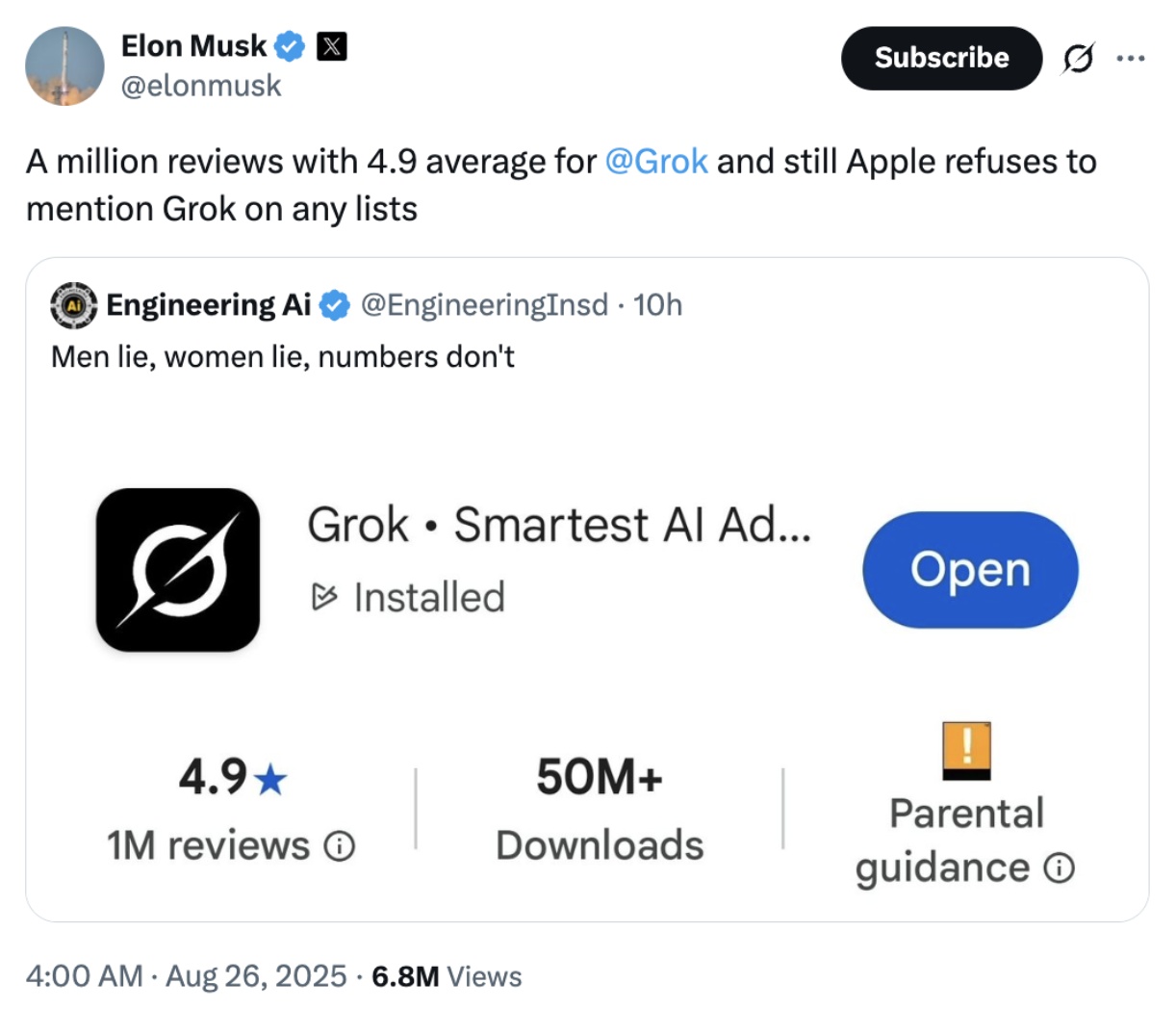Musk’s Companies Sue Tech Giants: Apple and OpenAI Accused of Collusion to Monopolize AI
TradingKey - August 25th, EST, Elon Musk’s artificial intelligence company xAI and social media platform X filed a federal lawsuit in the Northern District of Texas, accusing Apple and OpenAI of colluding to engage in anti-competitive behavior — an alleged scheme designed to suppress rivals in the AI space and solidify both companies’ dominance in the smartphone and generative AI markets.

Source: X
The complaint alleges that Apple has systematically suppressed AI competitors, including xAI’s Grok and other “super apps” and AI chatbots, through the App Store’s algorithm and ranking mechanisms, limiting their visibility and user acquisition. At the same time, Apple has deeply integrated OpenAI’s ChatGPT into its iOS ecosystem — including Spotlight search, Siri, and system-wide AI features — granting it a privileged distribution advantage. The plaintiffs argue this constitutes systemic discrimination against competing AI developers.
“Apple and OpenAI are working together — one to protect its monopoly in smartphones, the other to maintain its dominance in generative AI — to jointly strangle innovation,” the lawsuit states.
The case marks a significant escalation in the long-simmering feud between Musk and OpenAI CEO Sam Altman. Musk was a co-founder of OpenAI but left in 2018, citing concerns over its direction and commercialization. Last year, he sued OpenAI and Altman, accusing them of abandoning the company’s original mission to “develop AI for the benefit of humanity.” By now adding Apple as a defendant, Musk is signaling a broader campaign to challenge the power structure of the AI ecosystem.
Musk has previously criticized Apple, claiming its App Store policies make it impossible for any AI company other than OpenAI to reach the top, amounting to a clear anti-competitive practice. Altman has pushed back, accusing Musk of his own platform manipulation. Apple, for its part, maintains that its App Store policies are “fair, transparent, and applied equally” to all developers.
This lawsuit goes beyond corporate rivalry. It strikes at the heart of platform power, algorithmic transparency, and fair innovation in the AI era. As generative AI becomes the central battleground of technological competition, the legal and regulatory definition of collaboration versus collusion will become a defining challenge for courts and regulators worldwide.






